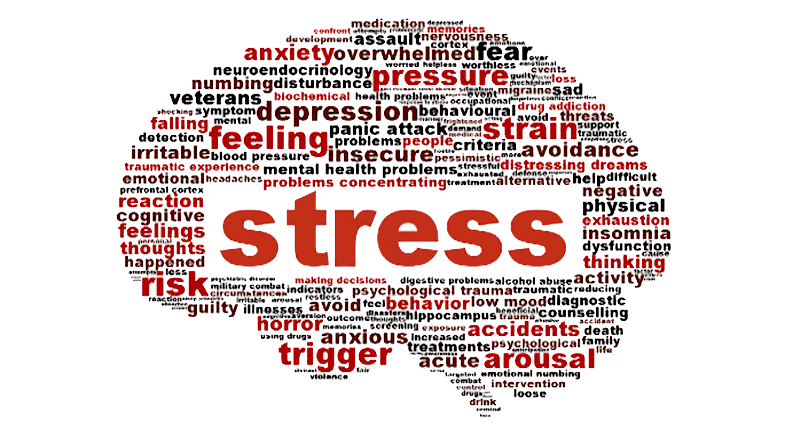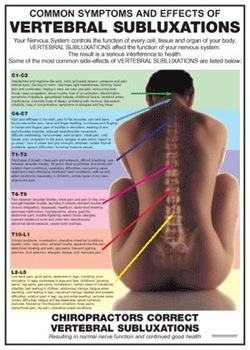 You Can’t Avoid It!
You Can’t Avoid It!
Avoid stress? Impossible! To be alive is to be under stress. But stress is not necessarily bad for you. Any emotion, any activity causes stress. The same stress which makes one person sick can be an invigorating experience for another.1
Stress Is Good … Or Bad
With too little stress you’d be bored to tears but with too much you’d develop emotional and physical disease. Properly handled, stress can mean a life of challenge, excitement and growth.
The biographies of great scientists, explorers, artists and other creative and accomplished individuals reveal that times of intense stress are also times of insight, creativity, accomplishment and growth.
You can either grow, thrive and heal in the face of stress or be reduced to dullness and disease. It’s your choice.
It’s often said that stress is one of the most destructive elements in people’s daily lives, but that’s only a half-truth. The way we react to stress is more important than the stress itself.2
What Happens When You Face Stress?
When you confront stress, complicated things happen inside you; chemicals and nerve impulses create the general adaptation syndrome or G.A.S., which has three stages:
- First is the “call to arms”—the alarm reaction. Messages stream from your brain to your endocrine (hormonal) system in a “fight or flight” response. If the stress stops, you revert to normal.
- If the stress continues, you enter the Stage of Resistance—your body tries to adapt to the stress; it puts up the barricades, so to speak. You tense your muscles, you raise your fever, you struggle to prevail. If the stress stops, you revert to normal.
- If the stress still continues you may enter the Stage of Exhaustion. Your system falls prey to ill health.3
Chronic Stress
In olden days you’d confront a lion, tiger or bear and run away from it. After running safely away, your stress levels would drop. Or you’d fight it and kill it so it would become dinner and your stress would disappear. Or you’d become its dinner and you’d never feel stress (or anything else) again.
But what if you have a fight with your boss, spouse or landlord? What about making a living and paying bills? You can’t run away and you can’t kill—you have to cope. Living in this world of not quite fight and not quite flight often causes us to carry around unresolved, chronic stress much of the time.
Chronic stress means you never completely relax and, because of the energy drain, your body and mind become fatigued. You are then more susceptible to colds, infection, ulcers, digestive troubles, high blood pressure, asthma, arthritis, heart disease and premature aging!
 Dealing With Chronic Stress
Dealing With Chronic Stress
A person under stress is more likely to have a weakened immune system.4 Conversely, having a shoulder to cry on or friends to talk to helps you deal with chronic stress. Such relationships increase life expectancy and help fight any disease including cancer.5-6 Even the companionship of a pet is healing—dogs take a bite out of stress because they provide unconditional support. In a study, elderly pet owners visited doctors less than their same-aged counterparts who had no pets.7
Prayer and meditation also relieve stress. One study of 2,000 people practicing meditation showed that they had a significant reduction in a wide spectrum of ailments, particularly tumors and infectious diseases.8
Writing about stressful experiences has a powerful healing effect. Journal writers had reduced symptoms of asthma and rheumatoid arthritis in one study.9
The Chiropractic Approach
One of the simplest and easiest ways of stress reduction is having a chiropractic adjustment!
Chiropractors are specially trained to free you from a severe, destructive, chronic stress: the subluxation. A subluxation is a very common, often painless distortion in your structural system that affects your spine and nervous system, stressing you physically and emotionally.
Subluxations In Your Body
You may have subluxations in your body for years without knowing it, while your health is being undermined, your energy drops, you age faster, you develop disease and show increasing wear and tear in your body. It’s similar to a house with termites—no apparent damage at first but one day the floor collapses!
Doctors of chiropractic specialize in the correction of subluxations. Chiropractic care, by removing subluxation stress from your body, improves the function of your nervous system and promotes better adaptation to stress, whether physical or psychological.
No matter what your health problem, keeping your body free of subluxations will permit you to better deal with stress, heal better, function better and enjoy life more.10-16
Are you carrying the chronic stress of subluxations in your body? Are your loved ones? A chiropractic checkup can help.
To schedule an appointment at Performance Chiropractic, call us at (661) 942-5000.
References
- Selye H. The Stress of Life. NY: McGraw-Hill. 1984:xv.
- Siegel B. Love, Medicine and Miracles. NY: Harper & Row. 1986:70.
- Selye H. The Stress of Life. NY: McGraw-Hill. 1984:79.
- Cohen S et al. Psychological stress and susceptibility to the common cold. N. Engl. J Med. 1991;325:606-612.
- Cohen S, Doyle W, Skoner D. Social ties and susceptibility to the common cold. JAMA. 1997;277(24):1940-1944.
- Spiegel D et al. Effect of psychosocial treatment on survival of patients with metastatic breast cancer. The Lancet. October 14, 1989:888-891.
- Bower B. Science News. Nov. 2, 1991:285.
- Orme-Johnson D. Medical care utilization and the transcendental meditation program. Psychosomatic Medicine. 1987;49(5):493-507.
- Smyth J, Stone A, Hurewitz A, Kaell A. Effects of writing about stressful experiences on symptom reduction in patients with asthma or rheumatoid arthritis. JAMA. 1999;281(14):1304-1309.
- Blanks RHI, Schuster TL. A retrospective assessment of network care using a survey of self-rated health, wellness and quality of life. JVSR. 1997;1(4):1.
- Marino MJ, Phillippa ML. A longitudinal assessment of chiropractic care using a survey of self-rated health wellness & quality of life: a preliminary study. JVSR. 1999;3(2):1-9.
- Owens EF, Hoiriis KT, Burd D. Changes in general health status during upper cervical chiropractic care: PBR progress report. Chiropractic Research Journal. 1998;5(1):9-16.
- Burd D, Hoiriis KT, Owens EF. Changes in general health status during upper cervical chiropractic care: a practice-based research project update. Chiropractic Research Journal. 1999;6(2):65-70.
- Ressel O, Rudy R. Vertebral subluxation correlated with somatic, visceral and immune complaints: an analysis of 650 children under chiropractic care. JVSR. October 18, 2004;1-23.
- Boone WR, Oswald P, Holt K et al. Long term assessment of blood indices and immune panel profiling of subjects receiving chiropractic care:
a pilot study. JVSR. June 7, 2006:1-11. - Alcantara J, Ohm J, Kunz D. Treatment-related aggravations, complications and improvements attributed to chiropractic spinal manipulative therapy of pediatric patients: a practice-based survey of practitioners. Paediatric CAM research day, University of Alberta, Canada. December 11, 2007.




FOLLOW US!